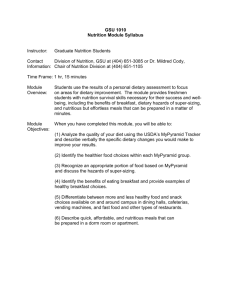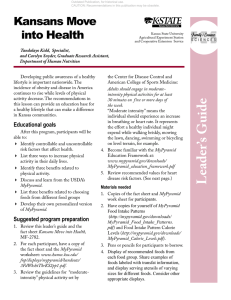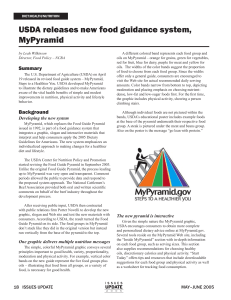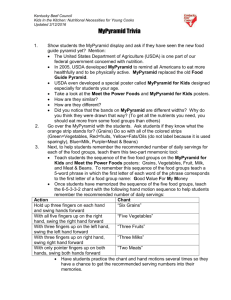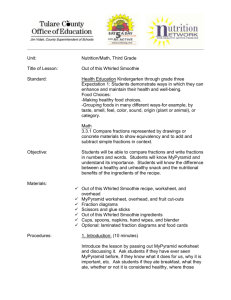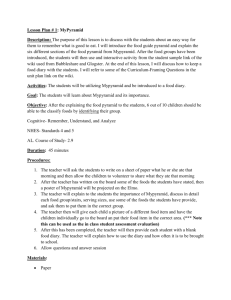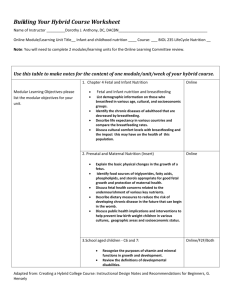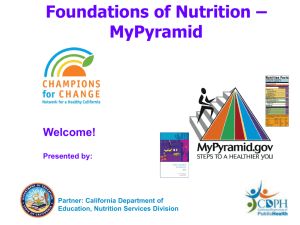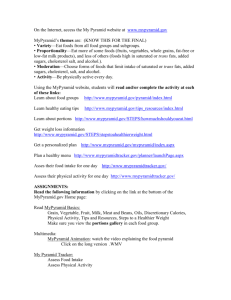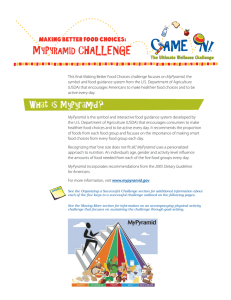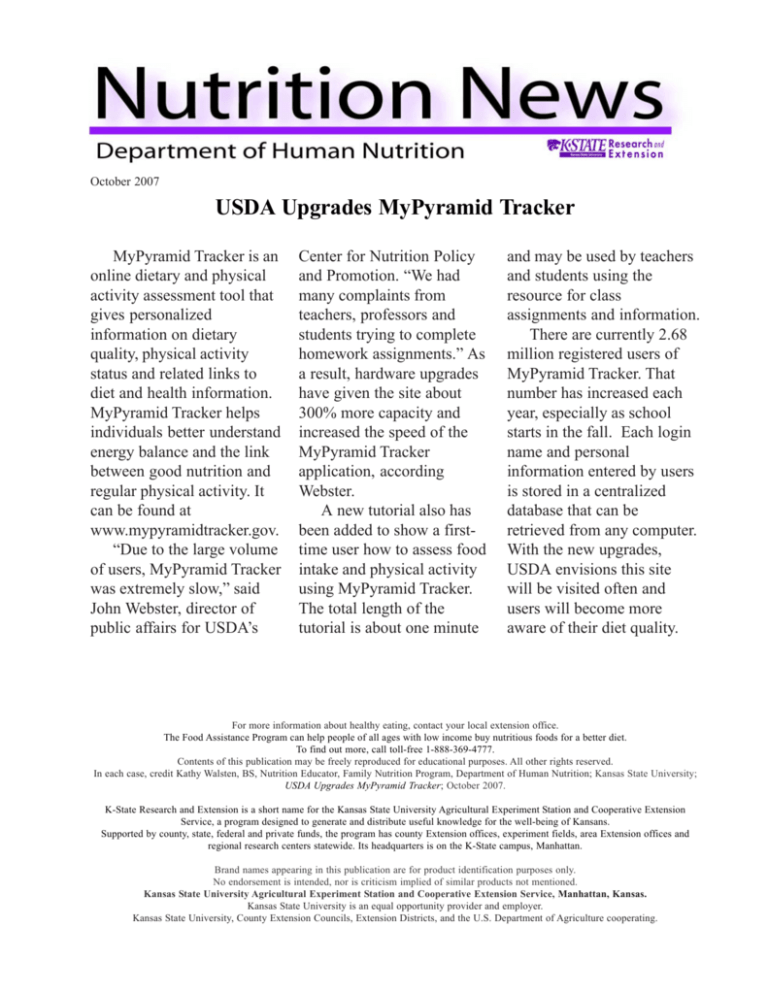
October 2007
USDA Upgrades MyPyramid Tracker
MyPyramid Tracker is an
online dietary and physical
activity assessment tool that
gives personalized
information on dietary
quality, physical activity
status and related links to
diet and health information.
MyPyramid Tracker helps
individuals better understand
energy balance and the link
between good nutrition and
regular physical activity. It
can be found at
www.mypyramidtracker.gov.
“Due to the large volume
of users, MyPyramid Tracker
was extremely slow,” said
John Webster, director of
public affairs for USDA’s
Center for Nutrition Policy
and Promotion. “We had
many complaints from
teachers, professors and
students trying to complete
homework assignments.” As
a result, hardware upgrades
have given the site about
300% more capacity and
increased the speed of the
MyPyramid Tracker
application, according
Webster.
A new tutorial also has
been added to show a firsttime user how to assess food
intake and physical activity
using MyPyramid Tracker.
The total length of the
tutorial is about one minute
and may be used by teachers
and students using the
resource for class
assignments and information.
There are currently 2.68
million registered users of
MyPyramid Tracker. That
number has increased each
year, especially as school
starts in the fall. Each login
name and personal
information entered by users
is stored in a centralized
database that can be
retrieved from any computer.
With the new upgrades,
USDA envisions this site
will be visited often and
users will become more
aware of their diet quality.
For more information about healthy eating, contact your local extension office.
The Food Assistance Program can help people of all ages with low income buy nutritious foods for a better diet.
To find out more, call toll-free 1-888-369-4777.
Contents of this publication may be freely reproduced for educational purposes. All other rights reserved.
In each case, credit Kathy Walsten, BS, Nutrition Educator, Family Nutrition Program, Department of Human Nutrition; Kansas State University;
USDA Upgrades MyPyramid Tracker; October 2007.
K-State Research and Extension is a short name for the Kansas State University Agricultural Experiment Station and Cooperative Extension
Service, a program designed to generate and distribute useful knowledge for the well-being of Kansans.
Supported by county, state, federal and private funds, the program has county Extension offices, experiment fields, area Extension offices and
regional research centers statewide. Its headquarters is on the K-State campus, Manhattan.
Brand names appearing in this publication are for product identification purposes only.
No endorsement is intended, nor is criticism implied of similar products not mentioned.
Kansas State University Agricultural Experiment Station and Cooperative Extension Service, Manhattan, Kansas.
Kansas State University is an equal opportunity provider and employer.
Kansas State University, County Extension Councils, Extension Districts, and the U.S. Department of Agriculture cooperating.

